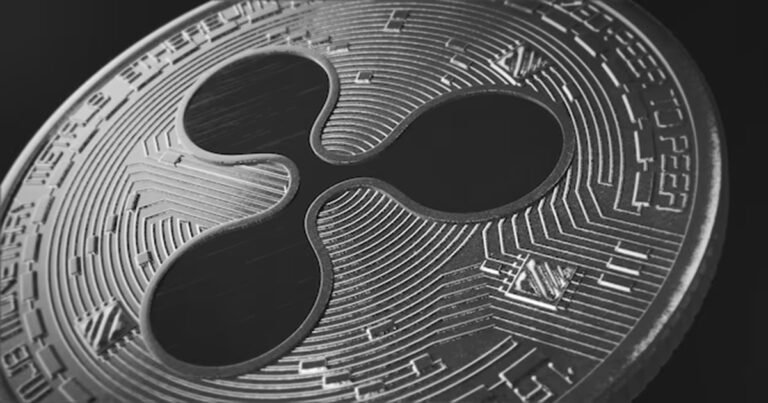When it comes to cryptocurrencies, XRP often stands out from the crowd. Known as Ripple’s digital token, XRP has been a game-changer in the realms of blockchain technology, cross-border payments, and financial transactions. But what exactly is XRP, and why does it matter in the volatile world of cryptocurrency? This blog post explores everything you need to know about XRP, its use cases, potential benefits, and how it compares to other cryptocurrencies.
Whether you’re a tech-savvy investor, a blockchain enthusiast, or just starting to dip your toes into the cryptocurrency world, this guide will provide valuable insights into XRP.
Table of Contents
What is XRP?
XRP is a cryptocurrency created by Ripple Labs with the primary objective of facilitating fast and low-cost international money transfers. Unlike Bitcoin, which is mined, XRP operates on a unique consensus protocol and is hosted on the XRP Ledger—a blockchain created to enable fast and secure transactions.
Key Features of XRP:
- Fast Transaction Speed: Transactions typically settle in 3-5 seconds.
- Low Fees: The average transaction fee is fractions of a cent.
- Scalable: Can handle up to 1,500 transactions per second.
- Environmentally Friendly: XRP does not rely on energy-intensive mining like Bitcoin or Ethereum.
Created in 2012, XRP acts as a bridge currency, facilitating fiat-to-fiat currency exchanges within seconds through Ripple’s payment network.
How XRP Works
XRP functions differently from traditional cryptocurrencies like Bitcoin and Ethereum. Here’s a breakdown of its unique mechanisms:
- Consensus Protocol – XRP does not rely on miners for transaction verification. Instead, it uses a consensus mechanism where independent validators agree on the transaction order. This ensures faster processing times.
- XRP Ledger – The XRP Ledger is an open-source blockchain technology designed to process financial transactions securely and efficiently. It operates globally and provides liquidity for cross-border payments.
- Bridge Currency – XRP is often used as a bridge to convert currencies quickly, reducing the cost and complexity of international payments.
Data Table Illustrating XRP Features vs. Other Cryptocurrencies
| Feature | XRP | Bitcoin | Ethereum |
|---|---|---|---|
| Transaction Time | 3-5 seconds | ~10 minutes | ~15 seconds |
| Transaction Fee | <$0.0005 | ~$2-$5 | ~$1-$10 |
| Energy Usage | Minimal | High | High |
| Consensus | Validator network | Proof of Work | Proof of Stake |
| TPS (Transactions/sec) | Up to 1,500 | 7 | ~30 |
This table highlights XRP’s advantages in speed, cost, and environmental impact compared to Bitcoin and Ethereum.
Use Cases of XRP
XRP isn’t just another digital currency. Its practical implementations set it apart from many cryptocurrencies in the market. Some of the primary use cases include:
1. Cross-Border Payments
XRP’s ability to execute near-instantaneous transactions makes it ideal for international payments. Banks and payment providers use Ripple’s network to enable cross-border transfers at a minimal fee compared to SWIFT or traditional banking methods.
2. Liquidity for Financial Institutions
XRP acts as a bridge currency between different fiat currencies. For instance, if someone wants to send dollars to a recipient who prefers euros, XRP facilitates the exchange speedily and efficiently.
3. Micropayments
Due to its negligible transaction fees, XRP is perfect for supporting microtransactions, whether it’s tipping content creators or paying for digital goods.
4. Decentralized Finance (DeFi)
Through the XRP Ledger, developers have begun to explore XRP’s potential in decentralized finance applications, such as issuing stablecoins or enabling peer-to-peer lending.
Advantages of Investing in XRP
Cryptocurrency investors often ask, “Why should I invest in XRP?” Here are some compelling reasons to consider:
- Utility – Unlike many cryptocurrencies that aim to act as digital gold, XRP solves real-world problems in the financial ecosystem.
- Adoption by Financial Giants – Major institutions like Santander and American Express use Ripple’s technology, which often involves XRP.
- Sustainability – XRP’s eco-friendly consensus mechanism aligns with the growing demand for sustainable finance.
- Accessibility – XRP is available on major crypto exchanges, making it easy to buy, sell, and trade.
Challenges XRP Faces
Despite its benefits, XRP is not without challenges:
- Regulatory Issues – Ripple Labs is currently embroiled in a lawsuit with the U.S. SEC over the classification of XRP as a security. Legal disputes can cause price volatility.
- Centralization Concerns – While XRP operates on the XRP Ledger, critics argue that Ripple’s control over a large share of XRP tokens raises concerns about centralization.
Frequently Asked Questions About XRP
1. What is the current price of XRP?
The price of XRP fluctuates based on market conditions. You can view the latest price on cryptocurrency tracking websites like CoinMarketCap.
2. How do I buy XRP?
You can purchase XRP on popular cryptocurrency exchanges such as Binance, Coinbase, Kraken, and Bitstamp. Simply sign up, verify your ID, deposit funds, and place your order.
3. Is XRP a good investment?
XRP can be a good investment if you believe in its use case and adoption potential. However, cryptocurrency investments come with risk due to market volatility.
4. Can XRP be mined like Bitcoin?
No, XRP cannot be mined. All XRP tokens were pre-mined at inception, with a total fixed supply of 100 billion XRP.
5. What makes XRP different from Bitcoin?
While Bitcoin aims to be digital gold with a focus on decentralization, XRP focuses on solving specific financial problems, such as cross-border payments with faster speeds and lower fees.
Why XRP Matters in the Cryptocurrency Space
XRP’s combination of speed, efficiency, and scalability makes it a strong contender in cryptocurrency and payments technology. With increasing institutional adoption and use cases in cross-border payments, XRP remains a critical part of the blockchain ecosystem.
If you’re a cryptocurrency enthusiast, new investor, or developer interested in the potential of XRP, its innovative approach to financial transactions is worth exploring. Remember, as with any investment, always conduct thorough research before putting your money into the market.

